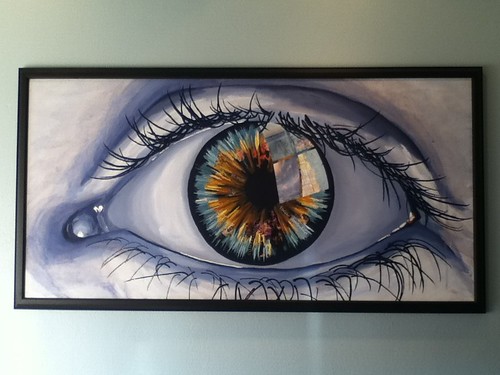 You only get one pair of eyes, right? That means you need to do your best to take care of them. While regular vision checks are paramount, there are some common problems you may experience between visits that many people tend to ignore. The following are some of the most common eye problems and what you should do if you experience them.
You only get one pair of eyes, right? That means you need to do your best to take care of them. While regular vision checks are paramount, there are some common problems you may experience between visits that many people tend to ignore. The following are some of the most common eye problems and what you should do if you experience them.
Pink Eye
Pink eye commonly affects children but adults can contract this highly contagious eye infection as well. The medical term for this condition is conjunctivitis and the problem occurs when the clear mucous membrane that covers the white part of your eye becomes inflamed, or swollen. The swelling ultimately causes redness, light sensitivity, blurry vision, a feeling of grittiness, tearing, and crusty discharge (especially at night).
Conjunctivitis can be caused by bacteria, viruses, chemicals, clogged tea ducts, allergies, and even chemicals. The viral and bacterial forms are, of course, incredibly contagious and can remain so for up to 14 days after symptoms develop. If you have the signs of viral or bacterial conjunctivitis, you’ll need to see an eye doctor immediately so that he can determine what type of infection you have an what ointments you’ll need for your eyes.
Twitching Eyes
Do you ever experience twitching around your eyes? Twitching is certainly annoying but it is usually something that can be controlled and will not cause you any harm. There are several physical factors that can cause twitching, including consuming too much caffeine, high levels of stress, extreme fatigue, panic and anxiety disorders, and even pink eye.
Eye twitching usually goes away on its own. You may want to find ways to reduce the stress in your life, get more rest, and reduce your caffeine consumption. If you have symptoms of pink eye, you’ll need to see a doctor. If the symptoms aren’t going away, see your eye care professional anyway to determine what underlying cause you may be missing.
Eye Fatigue
Let’s face it. Many of us spend more time in front of the computer, focusing, than ever before. If your eyes feel tired, you may be suffering from one of a number of conditions, including farsightedness, astigmatism, dry eye syndrome, or computer vision syndrome.
A trip to your eye doctor to determine the cause of your fatigue is definitely in order. If you suffer from computer vision syndrome, for example, you may need some glasses for your time at the computer to help you with the close-up focusing. If you have dry eye syndrome, you may need some lubricating eye drops. Astigmatism and farsightedness can usually be treated with glasses, contact lenses, or vision correction surgery.
Spots or Floaters
Do you see spots or things that look like little strands floating in your field of vision? These things aren’t entirely uncommon but the causes can be very serious if left untreated. Those with diabetic retinopathy, retinal detachment, posterior vitreous detachment, or who have experience strokes may develop this type of problem.
The occasional spot that goes away and doesn’t return may be nothing to worry about. I personally get spots when I have ocular migraines, and they go away, along with the other symptoms, within about 20 minutes. If you have diabetes, though, the increased pressure levels caused by high blood sugar can cause damage to the blood vessels behind your eyes and, ultimately, to your retinas. Retinal detachment is usually caused by a trauma but can occur with age as well. Seek immediate medical attention so that your eye doctor can rule out any sort of serious medical condition that needs urgent care.
Glaucoma
Glaucoma isn’t actually one disease. It’s a group of diseases that can cause the nerve fibers controlling your optic nerve to become damaged. Over time, the nerve fibers begin to die and a person’s vision deteriorates. There are often very few symptoms until damage is done. Your eye doctor will probably use a tonometry machine to measure the intra-ocular pressure in your eye during each exam.
If you are diagnosed with glaucoma, you’ll need treatments to reduce the pressure. Some people simply need eye drops (prescription), while others may opt for surgery. Advances in laser surgery have made it possible to prevent further damage while in some cases even partially correcting a person’s vision.
There are literally dozens of minor and more complicated eye disorders a person could develop, but these are some of the most common. Be conscious of your eye health and see a doctor if you are having trouble with your vision. The sooner a problem is detected, the easier it will be to treat.
About the Author: Bok Leikam is a landscaping pro who knows how important it is to protect his eyes from diseases and the elements. He wears sunglasses from Warby Parker whenever he is outside, especially when he is working.

